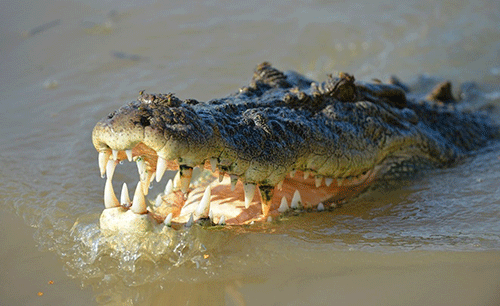The scarcity of potable water has heightened fears of human-wildlife conflict in the Zambezi and Kavango regions, with specifically crocodiles and hippos often attacking villagers drawing water from the two perennial rivers.
Part of the problem largely contributing to high incidences of human-wildlife conflict in Zambezi is the lack of potable water for residents as they are forced to draw water from the river and encounter these dangerous animals.
At least 112 incidences were reported in the region during 2021/22, compared to the 101 cases recorded the previous financial year.
A total number of 96 incidents were investigated, while 16 cases were not investigated.
Although crocodiles and hippos are not top on the list of dangerous animals, their attacks on humans are prevalent in Zambezi.
Recently, a 43-year-old fisherman from the Zambezi was attacked by a hippopotamus while fishing at the Mutundwalo River channel at Kongola.
In addressing the issue, Zambezi governor Lawrence Sampofu stressed that it is imperative that water pipes, either from rivers or boreholes, are extended to villages in order for communities to draw water nearby to avoid human-wildlife conflict.
He pointed out that limited budgetary allocations hampered staff members to attend to some of these incidents in the region.
“There are delays on the payment of human-wildlife conflict claims, which results in affected farmers complaining about the system,” he added.
The region is thus still facing the challenge of providing water to the communities through adequate pipelines and boreholes.
“Most of our communities are provided with water from boreholes while some are still drinking water directly from rivers, thus being exposed to hazards and unhygienic water,” he stated.
Sampofu pointed out that it is vital to embark upon plans to capture and preserve such water for human consumption and agricultural purposes.
The drilling and installation of boreholes at schools as well as for the community at large were achieved through government funding.
Furthermore, the governor reported that three boreholes funded by the Environmental Investment Fund (EIF) were drilled at the Sikanjabuka community forest, while one borehole funded by the NILALEG project was drilled at the Zilitene community forest to supply water to the local community and a nursery.
– anakale@nepc.com.na


